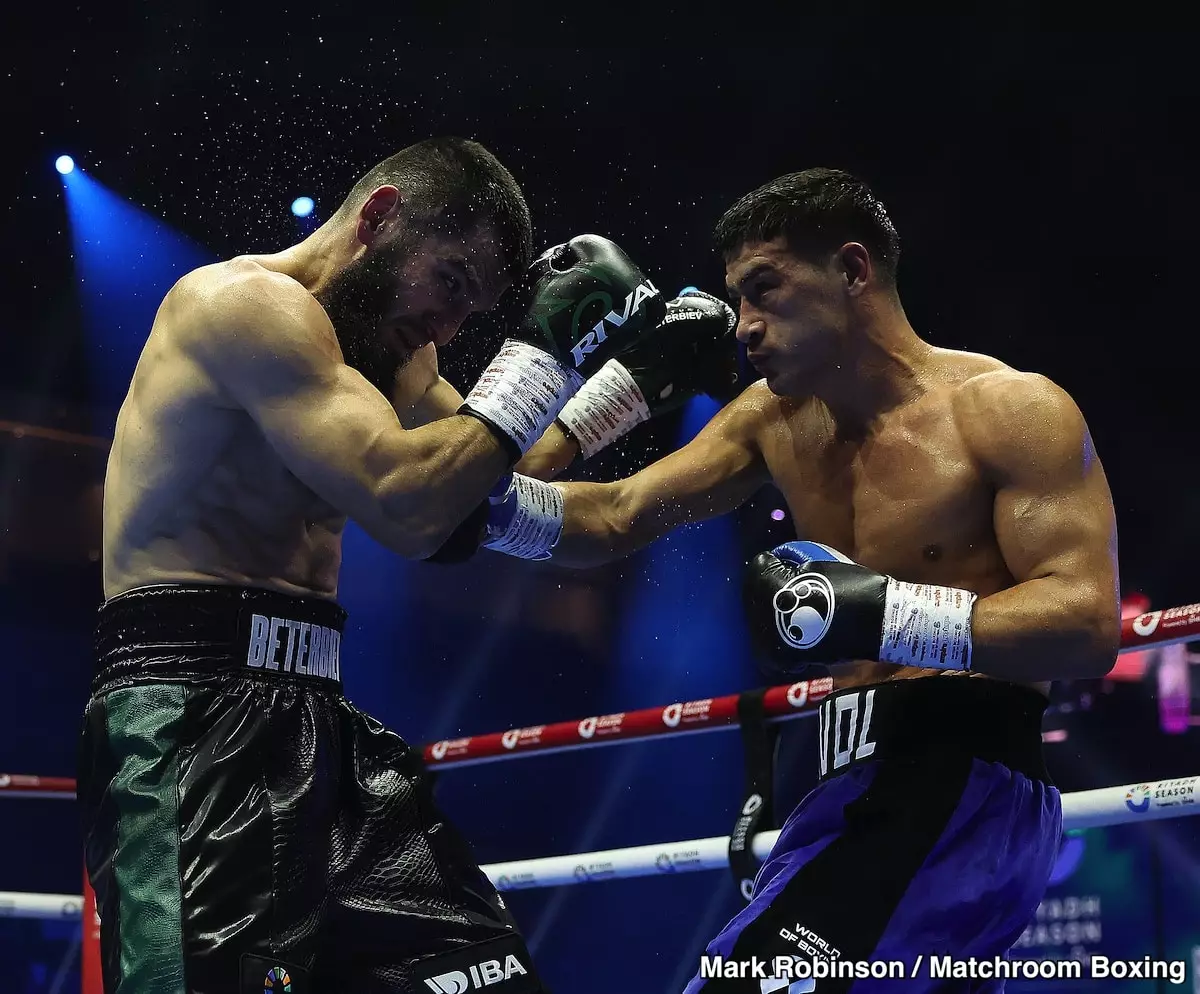To recognize potential pathways for victories in boxing, particularly in the light heavyweight division, it’s crucial to analyze a fighter’s previous bout and strategize accordingly for their next challenge. Dmitry Bivol’s recent clash with Artur Beterbiev left many fans and experts questioning the outcome and Bivol’s fight strategy, especially in the last crucial rounds. Trainer Robert Garcia offers insights into how Bivol can adjust his approach in a rematch, emphasizing the importance of aggression and stamina management.
In championship boxing, every round plays a pivotal role, but the final segments of the fight are often decisive. Despite being a skilled boxer capable of defensive maneuvers, Bivol’s performance in the last three rounds against Beterbiev raised eyebrows. Garcia argues that a more aggressive attitude in these critical moments could have secured Bivol a clear victory. Bivol (23-1, 12 KOs) is renowned for his technical abilities, yet his hesitance to engage offensively when it mattered most might have cost him the match.
It’s imperative to understand that the psychology surrounding the last three rounds can be as significant as the physical demands of the fight. Bivol’s perceived advantage might have led him to believe he could coast to victory, but in boxing, nothing is guaranteed until the final bell rings. Garcia’s assessment suggests that Bivol should not only aim to defend but also to assert his dominance as the match approaches its conclusion.
Bivol’s inclination to prioritize defense became evident during the latter portion of the fight. While a solid defense is fundamental, it becomes detrimental if it overshadows offensive opportunities. Garcia speculates whether fatigue or overconfidence influenced Bivol’s choice to retreat into a defensive shell rather than capitalize on openings to deliver combinations. This tactical miscalculation ultimately favored Beterbiev (21-0, 20 KOs), who thrived on Bivol’s passiveness.
A successful rematch would require Bivol to strike a better balance between defense and offense. Engaging more frequently in a calculated manner, particularly during the final rounds, could allow Bivol to not only score points but also shift the momentum of the fight in his favor. Garcia believes the judges often lean towards the fighter who demonstrates aggression alongside effective striking, especially in narrow rounds.
Historically, rematch fights often unfold differently than their predecessors. Both fighters have the advantage of reviewing the previous bout’s footage, allowing them to adjust their strategies. The psychological aspect of facing the same opponent twice should not be underestimated. In many instances, fighters come back stronger after a loss, fueled by the desire for redemption.
Bivol’s potential rematch with Beterbiev will be influenced by both fighters’ learning experiences from their first encounter. Bivol must find a way to implement the lessons learned while Keterbiev will likely come prepared to counter Bivol’s newfound tactics. Garcia acknowledges the significance of adaptability in rematch scenarios, explaining how a fighter’s ability to evolve can drastically change the fight’s dynamics.
While the prospect of a rematch remains uncertain, the boxing community has expressed a strong interest in witnessing a second showdown between Bivol and Beterbiev. This sentiment stems not only from the thrilling nature of their first encounter but also from the belief that Bivol’s performance can be markedly improved. Garcia’s input champions the idea that an aggressive approach could tilt the scales in Bivol’s favor.
However, there is a delicate balance in adopting an offensive strategy. An overly aggressive Bivol risks leaving himself vulnerable to Beterbiev’s powerful counter-strikes. Garcia’s strategy emphasis requires meticulous preparation and confidence, as Bivol must navigate the fine line between aggression and calculated risk.
As Bivol contemplates the next steps in his boxing career, lessons from his bout with Beterbiev will undoubtedly shape his approach. The insights provided by Garcia underline the complexities of boxing strategy in high-stakes environments. An increased offensive presence, particularly in the crucial final rounds, combined with strong conditioning and tactical awareness, could well enable Bivol to shift the narrative in a potential rematch. As the boxing world waits on the edge of anticipation, it remains clear that victory lies not only in skill but in the wisdom to adapt and execute when it matters the most.

